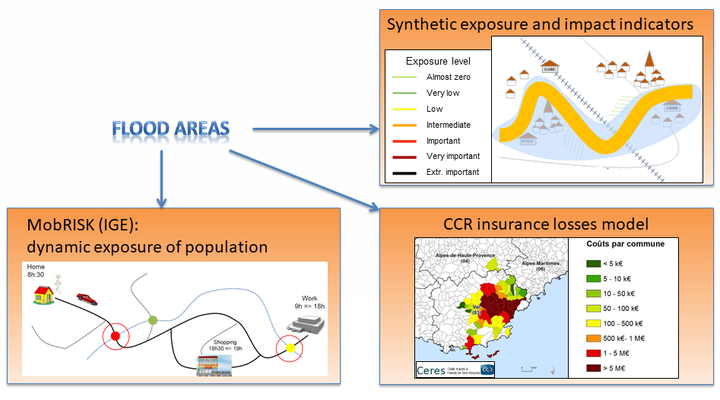Towards integrated forecasting of flash floods human impacts

Floods are one of the most frequently occurring weather related disasters, which affected more than 2.3 billion people worldwide and caused the highest amount of financial losses ($662 billion) over the last two decades (CRED and UNISDR, 2015). Flash floods have rapid onset which provides only few hours between rainfall and flooding and hence short time for warning which leads to the majority of flood casualties around the world. Flash floods are usually very localized in time and space, they occur suddenly and are difficult to forecast with accuracy which can leave people without warning. It produces social and spatial disorganization in the areas affected by these events and specific human behaviour. Advancements in engineering and physical sciences are very important to coping with flash floods as researchers from different fields try to understand the factors which will help us differentiate flash floods from other catastrophic disasters. However, such developments will only matter if the understanding of early warning, warning response and risk communication are enhanced (Montz and Gruntfest, 2002). The high degree of individual variability in behaviour during a flash flood event makes it very difficult to make a distinction between responses stemming from factors common to a whole population (e.g., nature of the disaster, social structure of the community) and highly individualized factors (e.g., previous disaster experience, social situation at the time of the disaster). Flash floods are very complex hydro-meteorological events and full of uncertainty. The technical aspects of such events are better known compared to human behaviours. These technical advancements produce earlier and more precise early warnings. But, it is difficult to know how will people respond? Therefore, it is crucially important to understand the complex human behavioural responses during the disaster to mitigate the devastating impacts of flash floods. In this project, we study the social dynamics associated with flash floods, the decision making of people to adapt their daily practices to changing environmental circumstances, socio-economic impacts of flash floods and understanding the important role that individual behavioral interactions have on system level dynamics. We are developing an agent-based social simulation model of the flash flood impacts (from hazard detection to public response). This model couples physical aspects (hydro-meteorological response) with social aspects related to how people respond to warnings and flash flood events.